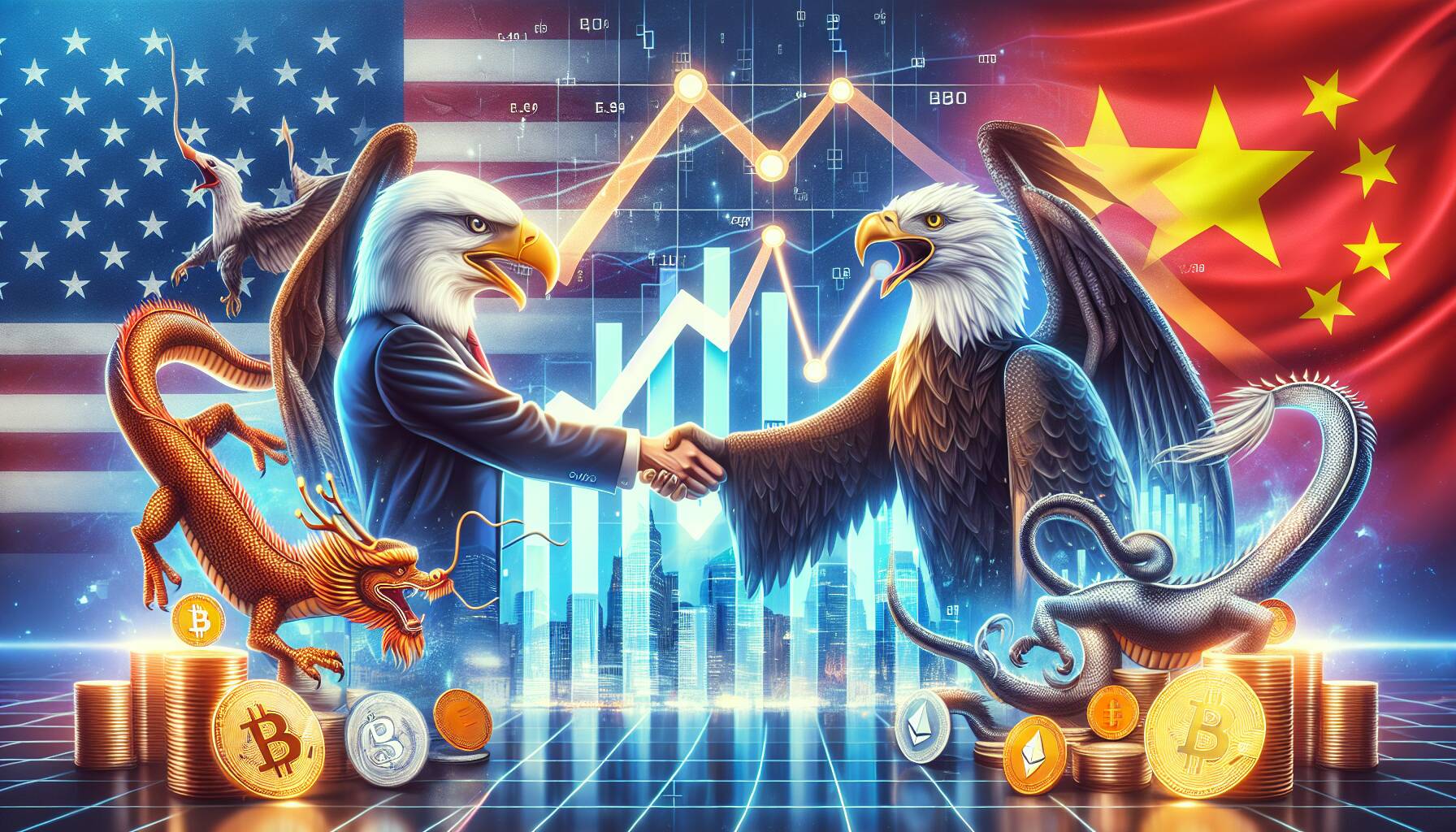The cryptocurrency market is witnessing a shift in sentiment, driven by positive developments in U.S.-China trade relations. In a recent report, a prominent broker has highlighted that the stabilization of digital asset treasuries is expected as strong trade ties begin to flourish. This emerging optimism could play a crucial role in shaping investor confidence and market dynamics in the coming months.
As the U.S. and China engage in constructive dialogue, the ripple effects are being felt across various sectors, including cryptocurrency. The collaboration between these global economic powerhouses often impacts market behavior, with traders and investors aligning their strategies based on geopolitical events. The latest trade progress has sparked hope among market participants, suggesting that a more stable economic environment may boost digital asset treasuries.
This newfound sense of stability could lead to a more resilient cryptocurrency market, drawing in cautious investors who have been observing from the sidelines. As sentiment swings positively, the stage is set for a potential revival of interest in digital currencies.
Market analysts are closely monitoring the interplay between trade developments and digital assets, noting that improvements in this arena could reinforce the appeal of cryptocurrencies. With digital asset treasuries stabilizing, there is a growing belief that the sector may be entering a new phase of resilience, reflecting broader economic trends and investor sentiment.

The Impact of U.S.-China Trade Progress on Digital Asset Treasuries
The following key points highlight the relationship between U.S.-China trade developments and the stabilization of digital asset treasuries:
- Market Sentiment Boost: Positive trade progress between the U.S. and China is likely to enhance investor confidence, leading to increased investments in digital assets.
- Stabilization of Digital Assets: As geopolitical tensions ease, digital asset treasuries may experience reduced volatility, making them more attractive to conservative investors.
- Institutional Adoption: Improved trade relations could encourage more institutional investors to enter the digital asset market, further driving demand and stability.
- Potential Regulatory Clarity: Progress in U.S.-China trade talks might lead to clearer regulations for digital assets, helping to legitimize the market and protect investors.
- Impact on Global Markets: Strengthened economic ties between the U.S. and China could lead to broader market stability, reflecting positively on digital asset performance.
Understanding the intertwining of international trade relations and digital asset markets can empower investors to make informed decisions and capitalize on emerging opportunities.
Stabilizing Digital Asset Treasuries Amid U.S.-China Trade Progress
The latest developments in the digital asset landscape highlight a significant shift in sentiment, particularly with regard to treasury holdings. As U.S.-China trade relations show signs of improvement, there is a palpable optimism that could lead to greater stability in digital asset treasuries. This situation sets a promising backdrop for investors looking to navigate the volatile crypto markets.
Competitive Advantages: The current stabilization of digital asset treasuries could attract traditional investors who have been hesitant due to previous market volatility. This renewed interest is bolstered by an overall positive economic sentiment stemming from trade agreements, signaling to investors that digital assets are becoming a more viable investment option. Furthermore, the potential normalization of trade relations may encourage institutional participation, which historically has led to increased liquidity and market confidence.
Disadvantages: However, this optimism is not without its challenges. The digital asset market remains susceptible to regulatory scrutiny and can be influenced by global economic factors beyond just U.S.-China relations. Any sudden shifts in policy or adverse economic indicators could disrupt this newfound stability, causing potential downturns for treasuries. Additionally, investors with a short-term focus may find it difficult to adapt to a market that requires a longer-term approach to realize the benefits of stabilization.
The emerging situation could particularly benefit institutional investors and hedge funds seeking diversification in their portfolios. These entities often look for reliable asset classes that can hedge against inflation and geopolitical uncertainties. Conversely, it could pose challenges for retail investors who might be more affected by fluctuations and lack the same level of resources to weather market instability. This bifurcation highlights the need for investors of all types to remain vigilant and informed in an ever-evolving economic landscape.
















